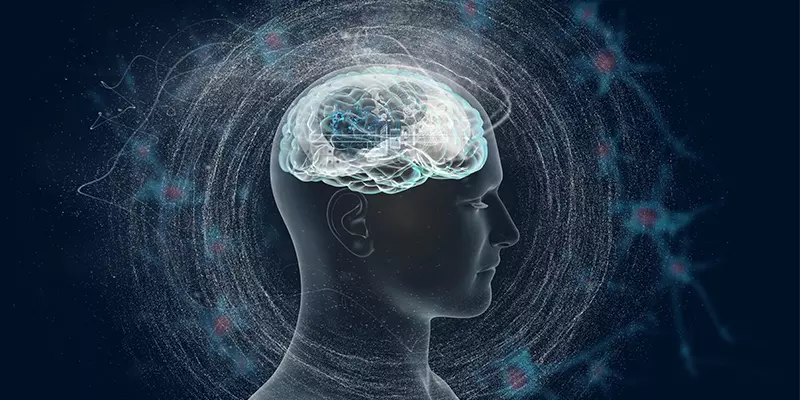
It’s no surprise that goal setting is critical for success. Most people equate goals with career, work, and money. But goal setting can also be beneficial in other areas of your life too. After 30-plus years of working with tens of thousands of patients, the psychiatrists at Amen Clinics routinely recommend a goal-setting tool called the One Page Miracle. This simple yet powerful tool makes a dramatic difference in the lives of those who practice it. It can be a game-changer in your life too.
The psychiatrists at Amen Clinics routinely recommend a goal-setting tool called the One Page Miracle. This simple yet powerful tool makes a dramatic difference in the lives of those who practice it. Click To Tweet
To be happy and successful in life, we must identify our goals. Specifically, we need to know who we are and what we want to accomplish not only at work, but also in our relationships, our physical and mental health, and spirituality.
When we know what we want in each of these areas of our lives, we are more likely to change our behavior to get it. With our lives guided by our goals, we are more inclined to make decisions that serve us.
THE NEUROSCIENCE OF GOAL SETTING
Goal setting begins in the brain. Neuroscience research proves it. Setting goals involves planning, attention, impulse control, working memory, and other processes collectively known as executive functions. These functions are largely regulated by the brain’s prefrontal cortex.
The prefrontal cortex (PFC) is located behind the forehead, and it plays a major role in decision-making. When the PFC is healthy, it acts like a brake in the brain to prevent you from unhelpful behaviors. For example, it’s what helps you say no to an extramarital affair, a third helping of cake, or a fourth round of cocktails.
If the PFC is underactive, however, it makes you more impulsive and can prevent you from reaching your primary goals. It makes you more likely to say yes to things that don’t serve you.
Goal setting effectively rewires the brain and boosts activity in the PFC. Creating a goal-setting worksheet essentially gives you an “auxiliary prefrontal cortex.” It will reinforce your conscious mind.
When Amen Clinics patients first hear about the importance of goal setting in life, they often respond with blank stares, say something related to career or financial goals, or talk about a dream vacation.
However, goal setting is not just for financial objectives or for some far-off dream. It is for the present, and it is critical for your daily actions. Identifying goals that you can focus on every day will have a major impact on your life.
FOCUS ON WHAT YOU WANT
Research shows that when setting goals, it’s best to focus on what you want, not what you don’t want. When you choose goals that guide you toward desirable outcomes, psychiatrists and psychologists call them approach goals. On the other hand, avoidance goals drive you away from undesirable outcomes.
An approach goal might be: “I’m going to take a brisk walk in the afternoon after work.”
An avoidant goal might be: “I’m going to stop going to the bar after work.”
Although these goals may seem similar, they activate different emotional and cognitive processes in the brain. Approach goals are linked to greater positivity and healthier mental well-being. Avoidant goals are associated with more negativity.
Because of this, approach goals are more beneficial in helping people achieve their objectives. For this reason, be sure to focus on the positive changes you want to make rather than the bad habits you want to eliminate.
ADD MASTERY GOALS TO YOUR PERFORMANCE GOALS
In goal-setting, include mastery goals that will help you achieve your performance goals. Mastery goals involve boosting your abilities by learning new skills. Performance goals involve setting benchmarks that judge your abilities.
For example, a performance goal might be: “I’m going to lose 15 pounds by the end of this month.”
A mastery goal might be: “I’m going to learn how to prepare healthy foods at home.”
Although these are both approach goals that move you toward a desirable outcome, they aren’t the same. Failing to achieve the goal of dropping 15 pounds might make you feel like weight loss is impossible for you. It can be a demotivator that prevents you from trying to reach your goal.
When you set a performance goal, include one of more mastery goals that will help you reach that objective.
THE FOUR CIRCLES OF A BALANCED LIFE
When engaging in the goal-setting process, be sure to include 4 key aspects of life: relationships, work, money, and self. By addressing what you want in each of these areas, you are more likely to achieve a more balanced life.
You are more vulnerable to burnout when your life becomes unbalanced, or when you focus too intently on a single aspect of life at the expense of others. By focusing on all of the key areas of life, you can make sure that your life stays in balance.
CREATE A ONE-PAGE MIRACLE
The physicians at Amen Clinics typically ask patients to do a goal-setting exercise called the One-Page Miracle (OPM). The One-Page Miracle will help direct your actions, thoughts, and words. It can quickly bring clarity to your life and can rapidly create a positive impact.
The steps to create your own One-Page Miracle are simple. On a single sheet of paper, simply write (or type) these 4 category headings and subcategories:
1. Relationships
- Spouse/partner
- Children
- Extended family
- Friends
- Clients
2. Work
- Short-term goals
- Long-term goals
3. Money
- Short-term goals
- Long-term goals
4. Self
- Physical
- Emotional
- Spiritual
Next to each subcategory on your goal-setting worksheet, write down what you want in that area. As mentioned above, be sure to describe what you want, not what you want to avoid.
Write in the first person, using “I want…” to begin each section. Keep a positive tone throughout. Carry your One-Page Miracle with you for a few days so you can refine your goals.
Once you have completed a first draft, put this sheet of paper somewhere you can see it each day. For example, you might want to tape it to your bathroom mirror, use a magnet to attach it to your refrigerator or put it in your briefcase. With it in plain view, you can stay focused on your life’s primary objectives.
On a daily basis, ask yourself, “Is my behavior today getting me what I want?” Doing so will help you focus your behavior and actions on the things that matter most to you. It also helps you develop greater self-control, which is key to better decision-making.
Overall, you will live a more conscious, intentional, and purposeful life. You will expend your energy on things that bring joy and happiness to you. Ultimately, this will make your life far more fulfilling.
Problems with focus, impulsivity, and other mental health issues can’t wait. At Amen Clinics, we’re here for you. We offer in-clinic brain scanning and appointments, as well as mental telehealth, clinical evaluations, and therapy for adults, teens, children, and couples. Find out more by speaking to a specialist today at 888-288-9834 or visit our contact page here.





Do I put one performance goal with mastery goals for each sub category? Even with 1 goal per sub category, that seems like a lot to work on all at once? Is there more information on setting good/helpful goals?
Comment by Karen Gillooly — October 16, 2023 @ 6:42 AM
This approach could be an important elective in any educational setting
Comment by Barbara — October 16, 2023 @ 7:16 AM
Thank you for this insightful tool. I have been using SMART Goals for a long time. You present a refined focus to behavioral change that is rooted in neuroscience. Grateful to you!
Comment by Nancy — October 16, 2023 @ 7:29 AM
I actually did these steps to recover from a coma that left me severely disabled, mentally and physically. Doctors said it would be impossible, but I proved them wrong. I didn't even use medical aid or prescription drugs. My main tool of recovery was realizing that my parents love for me is much greater than I can ever comprehend. Love heals, I am proof of that.
Comment by Darryl Sequeira — October 16, 2023 @ 7:53 AM
I'm unable to construct any goals,in any area,s
I feel a deep depression in general,a ND a feeling of being frozen.Help me I live in France,and would like information about brain health.
Comment by Mary Louise White — October 16, 2023 @ 11:02 AM
I love this message- would have appreciated receiving it immediately after my brain scans. I've needed some direction other than consuming multiple supplements and being directed to read four books causing me to feel overwhelmed with "homework" and trying to remember everything i need to do to get better.
Comment by Jo Evelyn Raible — October 16, 2023 @ 6:07 PM
This is an absolutely necessary tool. It should be taught to children by their parents from birth. We are goaled and organized by people, work, school, society but never really taught until we are out of high school or even college to do it ourselves.
Comment by Laura — October 17, 2023 @ 6:16 AM
How can a student prepare a one page miracle goal setting like this on this four critical areas
Comment by Onyekachi Samuel — November 21, 2023 @ 7:54 PM
Thanks for finally talking about >One Page Miracle: The Easiest and Best
Goal-Setting Tool | Amen Clinics Amen Clinics <Loved it!
Comment by 가인안마 — November 24, 2023 @ 1:28 PM
I јust like the valuable info you provіde
on your articles. I'll bookmark yoսr blog and test once more
rigһt here reguⅼarly. I am fairlʏ sure I'll bе told lots of new stuff ρroper
right here! Good luck for the next!
Comment by coco — November 24, 2023 @ 5:14 PM